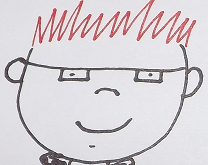 Last night I watched Freedom Songs: The Music of the Civil Rights Movement. I expected to hear spirituals and was surprised to find out about popular songs of the time that were often written as a means to express the singer's desire for freedom. Many of the artists had to talk in ambiguity just as slaves had to sing songs with a second meanings. The people in power would have shut down the radio stations if they had known to what some of the songs referred.
Last night I watched Freedom Songs: The Music of the Civil Rights Movement. I expected to hear spirituals and was surprised to find out about popular songs of the time that were often written as a means to express the singer's desire for freedom. Many of the artists had to talk in ambiguity just as slaves had to sing songs with a second meanings. The people in power would have shut down the radio stations if they had known to what some of the songs referred.I'd heard many of these popular songs before and had never made the connection between the words and the civil rights movement. I never really understood what Sam Cooke meant when he sang about how "it had been a long time coming, but a change was gonna come." Or when the Impressions sang, "People get ready, there's a train a comin'," I didn't realize that they were talking about a figurative train. I can't help but think about the underground railroad, which of course didn't really have tracks or a locomotive, but was an unstoppable movement for some to reach freedom.
Picket lines and picket signs. Don't punish me with brutality.
Talk to me, so you can see. Oh, what's going on. What's going
on....
Some of Gaye's words talk about long hair, but as someone pointed out in Freedom Songs, women stopped wearing their wigs and let their afro's grow out. Gaye may have hidden his call to action for civil rights within the Vietnam struggle.
Many of these songs talked about chains. I never really thought about chains as meaning those of white oppression. Even though slavery had been outlawed in the later 1800s, people of color knew they were still not free. In some ways as I watched this doc I kept thinking, "We're not finished. We still have a long way to go." At one point a picture from the late 50s/early 60s showed a marching man holding a sign that said "End poverty" because he knew that poverty was one way to hold people down. Poverty is still holding people in a silent place.
This music still has a place in our world. When a person of color has to work twice as hard to prove him/herself, we still need to sing about "Unity" and "Eyes on the Prize". Until banks give loans equally to all people, we have to keep saying, "Stand!" and "Respect." And until all people can walk down the street without hearing names yelled at them, we have to keep believing "I Shall Not Be Moved."

No comments:
Post a Comment